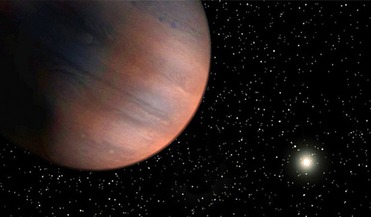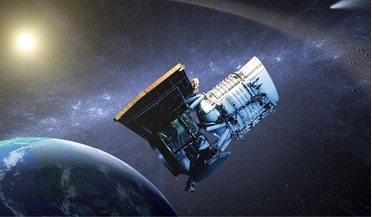 10 April 2017
Super-Jupiter mass planet found in the galactic bulge
10 April 2017
Super-Jupiter mass planet found in the galactic bulge
.... All telescopes were observing the event as part of the “Campaign 9” of the Kepler 2 mission, also known as the K2C9 program, which involves the recovered Kepler space telescope working in conjunction with ground-based observatories to find possible...
 October 2015
From post-humanity to fractals: is human space exploration doomed?
October 2015
From post-humanity to fractals: is human space exploration doomed?
..., which will stop our cosmic expansion, could occur earlier. The discovery of Earth-like planets by the Kepler Space Telescope, adds weight to the argument that intelligent life is widespread This barrier on the path of humanity...
 February 2016
How to Build Planets
February 2016
How to Build Planets
Exoplanet 51 Peg B was discovered by observing slight and regular velocity changes in its host star’s spectral lines, caused by the planet’s gravitational effects as it orbited the star. This method, known as the radial velocity method, is one of ...
 August 2016
Academia’s role in space protection, space traffic management & orbital debris mitigation
August 2016
Academia’s role in space protection, space traffic management & orbital debris mitigation
.... One of the recommendations emerging from the National Research Council’s 2012 assessment of AFSPC’s Astrodynamics Standards, ‘Continuing Kepler’s Quest’, was that AFSPC become more transparent and work via the Air Force Research Laboratory...
 February 2017
Growing space agency dilemma
February 2017
Growing space agency dilemma
... space stations, developing entirely new space vehicles and systems like the Hubble Space Telescope, the Kepler Space Telescope, the Rosetta mission to land on a comet, Japanese missions to the Moon, Indian mission to Mars, and...
 June 2017
Space economics - industry trends and space investing
June 2017
Space economics - industry trends and space investing
..., there has been a huge explosion in company formations. Notable startups include Planet, OmniEarth, Audacy, LeoLabs, Spire, Kepler, OneWeb, Astranis and Analytical Space. These companies are all racing to build infrastructure for what has...